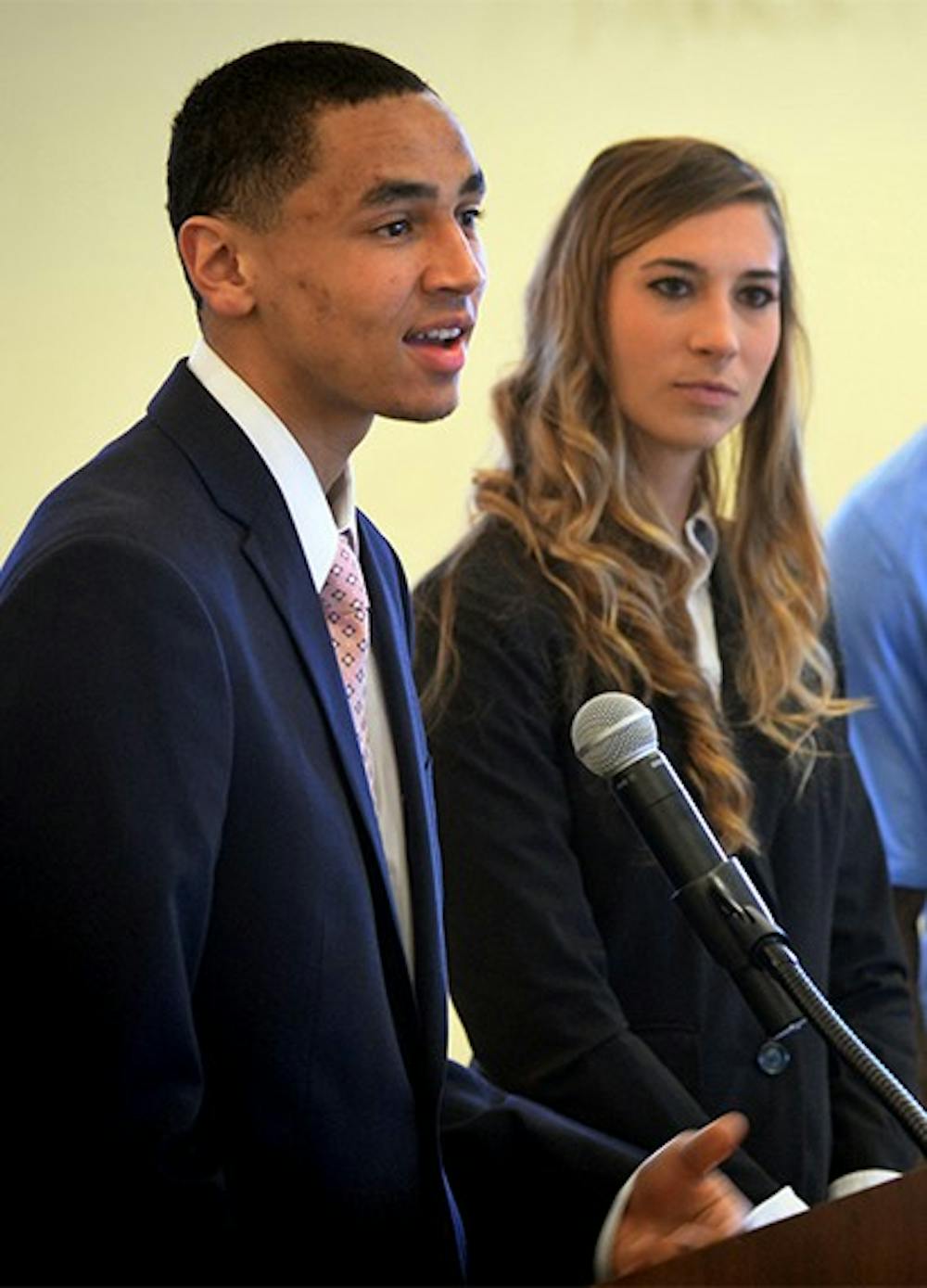Paige also said he is tired of negative portrayal of football and basketball players, especially the charge that they cannot read.
UNC is in the process of investigating the claim made by former learning specialist Mary Willingham that 60 percent of football and basketball players from 2004 to 2012 could not read above an eighth grade level.
“It’s more of a distraction off the court, and it’s just a negative perception that you don’t want surrounding your athletic department because we know how hard we worked the last game and it’s not fair to us,” he said.
The meeting comes on the heels of two admissions by former football players Deunta Williams , Michael McAdoo and Bryan Bishop that the University assigned no-show courses to athletes, and that they could not read at a college level. This week alone, those testimonies were shared in an ESPN Outside the Lines episode and also a special on HBO Sports.
Ikoma said although she was free to choose her own major, a freshman seminar professor once told her she should avoid studying biomedical science because she was an athlete.
“That was a red flag for me,” she said.
Board member Dwight Stone said the media has attacked student-athletes.
“Until you’ve walked in your shoes, nobody realizes the kind of time and effort that goes into being a student-athlete at Carolina,” he said.
Chancellor Carol Folt said she had received a letter from Willingham asking to meet.
“She gave me an agenda, said she’d like to share her personal story with me, and that she’d like to talk to me about her opinions about athletics and academics,” Folt said in a press conference after the athletes spoke. No date has been set.
Athletic Director Bubba Cunningham said in the press conference the purpose of having athletes attend the meeting was to show how they are no different than the student body.
“We frequently just view them when they’re competing but this is a great opportunity to get them off of the field, out of the gyms and talk to them as real students,” he said.
To get the day's news and headlines in your inbox each morning, sign up for our email newsletters.
Switzer said his day begins at 6:30 a.m. and ends around 10 p.m. Cunningham said this is a critical area to address.
“When you talk about what affects a student’s life, it’s time,” he said. “We only have 24 hours in a day .... We should really take a hard look at time and see if there’s a better way to organize the day so that students can get a better educational experience.”
university@dailytarheel.com



